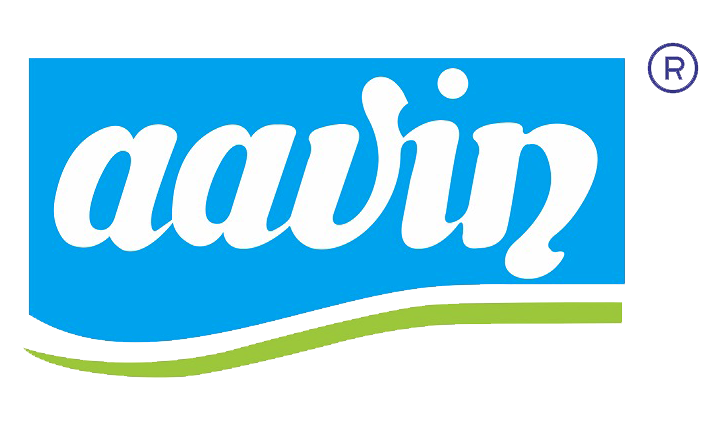எங்களை பற்றி
About Us
INTRODUCTION
India ranks first in global milk production contributing 20.17 percent. The dairy sector in India has grown substantially over the years and has emerged as a major driver of overall growth in the sector. India has achieved an annual output growth of 198.44 million tonnes during the year 2019 - 2020. The all India per capita availability of milk is 406 grams per day in 2019-20.
As per the 20th Livestock census, India has a vast resource of animal population totalling 536.76 million livestock, comprising about 193.46 million cattle and 109.85 million buffaloes.
Allied sectors including animal husbandry, dairying and fisheries are steadily emerging to be high growth sectors. The livestock sector has grown at a CAGR of 8.15 percent over the last five years ending 2019-20. Dairying sector is also a significant employer of the surplus workforce engaged in agriculture, which employs more than 8 crore farmers directly.
Milk is the single largest agricultural commodity by value contributing 5 percent of the national economy. Dairying has become an important secondary source of income for millions of rural families and has assumed the most important role in providing employment and income generation opportunities mainly for women and marginal farmers.
Dairying plays an important role in socio-economic development of rural households in the country. Major share of the milk in the country is produced by small, marginal farmers and landless labourers. Small land-base encourages the farmers to practice dairying as an occupation subsidiary to agriculture.
Income from agriculture is seasonal, whereas dairying provides year-round income and generates gainful employment in the rural sector. The drivers of demand for milk in India are population growth, urbanisation and increasing per capita income. The dairy sector is therefore an important vehicle for inclusive development in the country.
Dairying in Tamil Nadu
Tamil Nadu ranked 11th in milk production in 2019-20 with 8.76 million tonnes and the per capita availability of 316 grams per day. The milk production in Tamil Nadu has increased by 4.75% over the previous year.
Tamil Nadu possesses 24.5 million livestock including 9.52 million cattle, 0.52 million buffaloes with breedable cattle population of 6.40 million cattle and 0.35 million buffaloes as per 20th livestock census.
.
TCMPF is a Cooperative Apex Body in the State of Tamil Nadu representing organizations of milk producers’ and implementing all round dairy development activities to achieve the following objectives:
- To ensure assured and remunerative market round the year for the milk produced by the farmer members.
- To make available quality milk and value added dairy products to consumers.
- To build & develop village level institutions as cooperative model units to manage the dairy activities.
- To ensure provision of inputs for milk production, processing facilities and dissemination of know how.
- To facilitate rural development by providing opportunities for self-employment at village level, preventing migration to urban areas, introducing cash economy and opportunity for a sustained income.
The philosophy of dairy development is to eliminate middlemen and organize institutions to be owned and managed by the milk producers themselves, employing professionals. To sum it up, every activity of TCMPF revolves around meeting one basic objective: ‘Achieve economies of scale to ensure maximum returns to the milk producers, at the same time facilitate wholesome milk at reasonable price to urban consumers’.
Ultimately, the complex network of cooperative organization should build a bridge between masses of rural producers and millions of urban consumers and in the process achieve a socio-economic revolution in every hinterland of the State.
Strategies adopted to achieve the objectives:
- Facilitating the active performance of the primary societies and transforming the defunct societies as functional societies.
- Developing necessary facilities at primary and union levels for the benefit of milk producers.
- Imparting skills among the target group.
- Imparting extension education to the milk producers on milk testing process so as to strengthen the clean milk production at village level.
- Planning and implementing various schemes of State and Central Government for achieving the best in milk production, processing and marketing.
- Increasing the handling capacity of district level dairies to meet out the requirements.
- Establishing new parlours, sales points and developing the retail units.
- Formation of new milk routes, consumer societies and increasing the sale of milk cards.
The head of the department is the Director of Milk Production and Dairy Development (DMPDD). The DMPDD is also functioning as the ex-officio Managing Director of Tamil Nadu Cooperative Milk Producers Federation (TCMPF) and as the Registrar of all the 3 tier milk co-operatives. The Director is vested with the powers of Registrar in discharging the statutory functions under the provisions of the Tamil Nadu Co-operative Societies Act, 1983 (TNCS Act) and Tamil Nadu Co-operative Societies Rules, 1988 (TNCS Rules). The Deputy Milk Commissioner at Head Office is assisting the Director of Milk Production and Dairy Development both in carrying out the administrative and statutory functions.
There are 29 circle Deputy Registrars (Dairying) functioning in the State who are carrying out the administrative and statutory functions at the district level as per the powers delegated by the TNCS Act, 1983 and TNCS Rules, 1988. The Department has cadre strength of 805 employees including field staff.
Quality Control Department
The Quality Control Department of TCMPF Ltd. is functioning with the highly qualified technical personnel with State-of- the art laboratories for the testing of Milk & Milk Products as per the regulations of FSSAI, BIS, AGMARK and Export Inspection Council of India. The QC Department is ensuring the quality of Products at all stages from farm to fork. The dedicated QC team is working for 24 x 7 for 365 days to check the quality parameters of the Milk & Milk Products. The Milk is tested for the following quality parameters at our Quality Control Laboratories on entry at the Dairies.
- Organoleptic test
- Temperature
- Clot on Boiling Test
- MBRT Test
- Acidity
- Alcohol Test
- Adulterants Test – Sucrose, Urea, Maltodextrin, Starch, Dextrose Formalin/Hydrogen Peroxide/ Boric acid, Detergents, Salt, Vegetable oil/Fat, Neutralizers and Nitrates
- Fat (%)
- SNF (%)
- SPC
- Coliform
- Milk-O-Scan (Fat, SNF, Protein, Lactose)
- Milk-O-Screen (Fat, SNF, Protein & Adulterants)
- IR Moisture Analyser (Moisture (%)
- Automatic Kjeldhal Digestion & Distillation system (Protein Content)
- Somatic Cell counter (Somatic Cell count)
- Autotitrator ((Titrable Acidity))
- Bioeasy (Antibiotics/Veterinary Drugs, Aflatoxin)
- Bursting Strength apparatus (Bursting strength of Packing materials)
- Drop Load tester (Film strength)
- Muffle furnace (Ash Content)
TCMPF is well equipped with State of the Art Quality Control Laboratories to check the quality of the Milk at all Dairies, State wide.
The Milk is procured from the Milk Producers’ Cluster Societies and the quality of Milk is analyzed by AMCU, DPMCU and automated cloud based Milk analyzer. The rates are provided to the Milk Producers based on the quantity and quality of Milk.
Dairies are receiving the Milk from the BMCs and CCs for further processing into different variants of Milk & Milk Products. The Dairy quality Control Laboratories are equipped with the sophisticated equipments such as FTIR technology based Milk Analyser for immediate analysis of the quality parameters and Adulteration parameters such as Urea, Detergent, Maltodextrose, Sugar, etc. The Adulterant free Milk only is allowed to be processed further for the production of Milk & Milk Products.
The Production and Quality control activities are monitored by the trained Food Safety Supervisors at each stage of Production. Good Manufacturing Practices (GMP) and Good Housekeeping Practices (GHP) are monitored by the Quality Control team to ensure the safety of the Milk & Milk Products. Personal hygiene of the food handlers are also ensured in the dairy premises for hygienic product handling.
TCMPF Ltd. also obtained ISO 22000 Food Safety Management System (FSMS) certification for the Metro Dairies at Ambattur, Madhavaram, Sholinganallur, Product Dairy, Tiruvannamalai Powder Plant and Erode, Salem, Madurai and Coimbatore DCMPUs.
TCMPF is also approved by AGMARK, BIS and Export Inspection Council of India for the products such as Skimmed Milk Powder, Butter, Ghee and UHT milk.
TCMPF is also establishing a Centralized Laboratory facility for testing the Pesticide residues, Drug Residues, Heavy Metals and Aflatoxin M1 content in Milk Products under the National Programme for Dairy Development (NPDD) scheme. The laboratory will be utilized for testing the quality parameters for all the DCMPUs and TCMPF Units which is presently carried out through external NABL/FSSAI laboratories.
It is provided with high precision equipments such as Triple Quadruple Liquid Chromatography with Mass Spectrometer (LCMSMS), Gas Chromatography with Mass Spectrometer (GCMSMS) and Inductively Coupled Mass Spectrometer (ICPMS) to analyze Chemicals, Heavy Metals, Residual and Nutrient compounds in the Milk & Milk products to confirm the regulatory requirements.
Advanced Pathogen laboratory is in pipeline at Coimbatore DCMPU for analyzing Milk & Milk Products from the nearby District Unions.
Milk is tested at BMC/CC/District union Dairy/Metro Dairy laboratory, chemically and bacteriologically to ensure procurement of quality of milk. Quality milk procurement from the societies is essential before the milk is sent for processing manufacturing of milk products. All quality standards of milk and milk products are to be ensured in the best interest of the consumers. Adequate training is being imparted at all levels including milk producers, society staffs, district Union staffs and federation staffs to acquire knowledge in testing of milk during collection at society / BMC / CC / Dairy / FBD / Metro dairies. The milk procured by the primary milk Producer’s Co-operative Societies is being tested thoroughly and duly ensured that the Milk Preducers are getting reasonable price for the milk on quality basis. To distribute, hygienic and quality milk and milk products to consumers, the Federation and District Cooperative Milk Producers dairies are conducting various quality tests at various levels from the initial stage of milk collection through their quality control units by using modernized testing equipments to ensure the quality milk and milk products to the consumers. All District Unions and Federation Dairies are operated with the essential regulatory licenses such as FSSAI, BIS and AGMARK as applicable. All the Four Metro Dairies including Products Dairies, Dairy cum Powder plant at Thiruvannamalai District have obtained ISO 9001:2015, HACCP Certification and ISO 22000 Food Safety Management System Certification respectively. The Feeder Balancing Dairies namely Salem, Erode, Madurai and Coimbatore have obtained ISO 22000 Certification. The Food Safety Management system Certification process of other District Unions is under process. Erode, Salem and Dairy cum Powder plant, Thiruvannamalai Dairies have already obtained Export licence-EIA for Exporting the Quality products of SMP, Ghee and UHT Milk.



